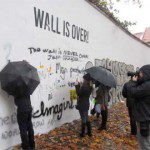According to a federal appeals court, New York City can keep churches from using school facilities for worship services, even during times when the schools are empty. In “Court Lets City Restrict Church Use of Schools,” the New York Times reports:
Deciding 2 to 1, a panel of the United States Court of Appeals for the Second Circuit said the city had “a strong basis to believe” that allowing the religious services to be conducted in schools could be seen as the kind of endorsement of religion that violated the First Amendment’s establishment clause.
“When worship services are performed in a place,” Judge Pierre N. Leval wrote for the majority, “the nature of the site changes. The site is no longer simply a room in a school being used temporarily for some activity.”
“The place has, at least for a time, become the church,” he wrote, adding that the city’s policy imposed “no restraint on the free expression of any point of view.” Rather, it applied only to “a certain type of activity — the conduct of worship services — and not to the free expression of religious views associated with it.”
Lawyers for New York City were pleased with this result.
One city lawyer, Jane L. Gordon, called Thursday’s ruling “a victory for the city’s schoolchildren and their families.” Ms. Gordon added that the Education Department was “quite properly concerned about having any school in this diverse city identified with one particular religious belief or practice.”
But, you might ask, aren’t there many different religious groups in such a diverse city? Doesn’t the fact that any of these groups have access to school facilities mean that there is no such identification? No, not according to Judge Pierre N. Leval, who wrote the decision for the 2-1 majority:
Judge Leval wrote that “the fact that New York City’s school facilities are more available on Sundays than any other day of the week means that there is a de facto bias in favor of Christian groups who want to use the schools for worship services.” His opinion was joined by Judge Guido Calabresi.

This is a most curious argument. I’m no legal scholar, but it seems to be a desperate attempt to find a reason to exclude Christian churches from using schools. I hope and expect that this will be appealed to the higher authorities (no, not God, but the full appeals court or the U.S. Supreme Court). If this decision by the appeals court is allowed to stand, it sets a distressing legal precedent that will hurt both religious freedom and the public schools.
That’s right, it will hurt the public schools. If churches are excluded from using schools for worship services, this would do substantial damage to public education because churches pay for the use of the schools (at least in the cases I’m familiar with). In a time when money for schools is drying up, it would be unfortunate if religious rent money were no longer available for schools.
Before I finish, let me make three general comments, two cultural and one theological.
First, what we’re seeing in New York is just one more in a long series of legal and cultural attacks, not just on the church, but also on the free exercise of religion in general. Thus, we should not be surprised by the decision of the appeals court. Also, this is not the first time that the state of New York has been involved in a case like this. Last time, its attempt to limit religious freedom was struck down by the Supreme Court. (See Good News Club v. Milford Central School.)
Second, apart from the legal issues in this particular case, we need a broad conversation about the appropriate place of religion in the public arena. I happen to believe that our culture is enriched as different religious traditions express their freedom. I think our society is enriched, for example, if a school is made available to a Hindu or Muslim group during off hours.
Third, from a theological point of view, Judge Leval is way off base. He writes: “When worship services are performed in a place, . . . the nature of the site changes. The site is no longer simply a room in a school being used temporarily for some activity. The place has, at least for a time, become the church.” Well, that might reflect his secular understanding of church, but it completely misses the Christian understanding of church, which has nothing to do with the place in which Christians meet, and everything to do with the Christians who are meeting in the place.
Thus, I find myself disagreeing, not only with Judge Leval, but also with the city lawyer, Jane L. Gordon. As you recall, she called the legal ruling “a victory for the city’s schoolchildren and their families.” She added that the Education Department was “quite properly concerned about having any school in this diverse city identified with one particular religious belief or practice.” Well, the legal ruling was certainly not a victory for the schoolchildren and families who are part of churches that meet in schools. Apparently, however, these people don’t count in Ms. Gordon’s calculation of victory. Moreover, I would argue that, in the end, this legal ruling actually inhibits the diversity that Ms. Gordon prizes because it effectively makes churches and other religious groups be less present in the public square. So, I would argue that the court’s decision is a loss both for the city’s schoolchildren and their families, and for culture diversity, not to mention the free expression of religion.











